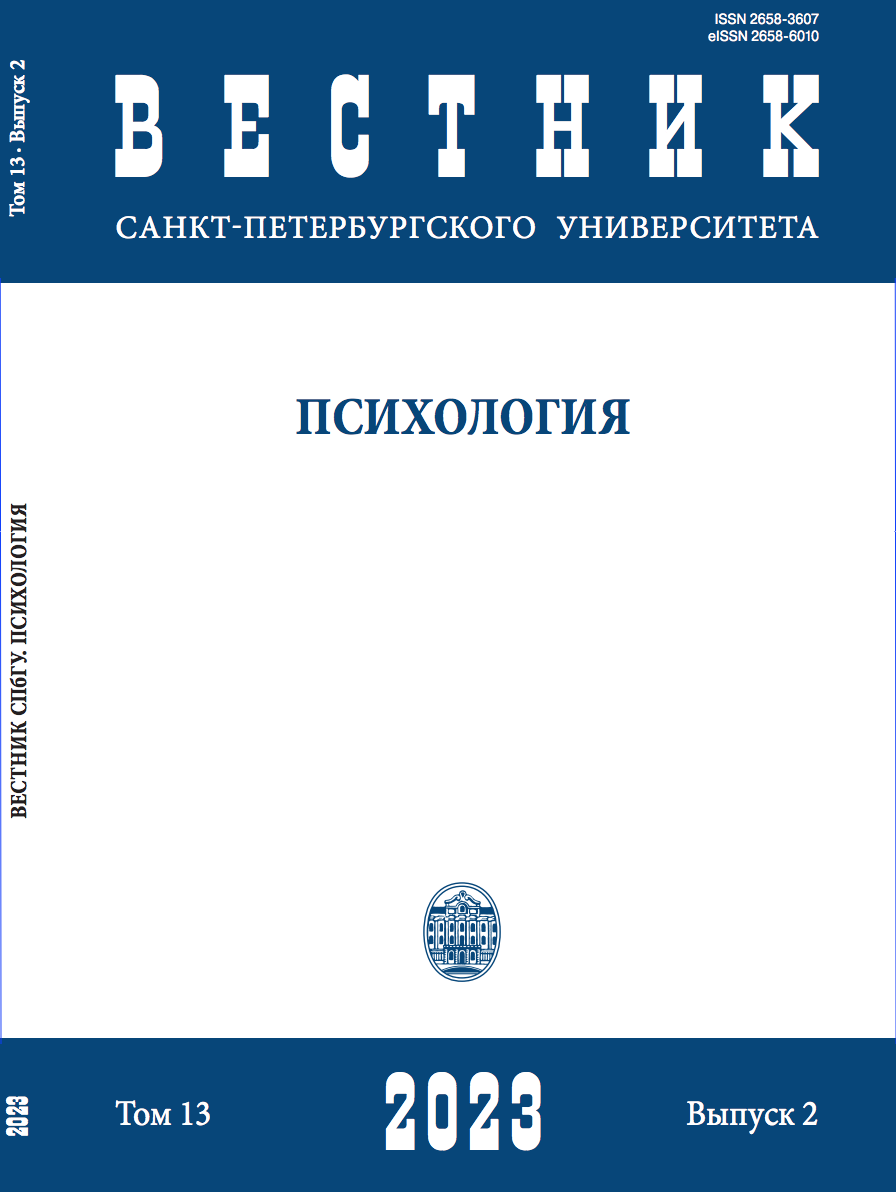Structural-level organization of conflict competence in the professional activities of a manager
DOI:
https://doi.org/10.21638/spbu16.2023.209Abstract
A high level of conflictogenicity in the educational environment, an increase of objective and subjective causes of conflicts, necessitate the formation and development of conflict competence among the heads of educational institutions. The relevance of research in this direction is due to a certain contradiction between the demands of practice for the prevention and resolution of conflicts and the real lack of a description and theoretical justification for the patterns of the structural-level organization of conflict competence. The starting point is the position of the scientific school of V.D. Shadrikov, according to which the implementation of the metasystem approach in line with the theory of systemogenesis makes it possible to explain the features of the development and functioning of complex systems, as well as their structural-level organization. This approach is a development and transformation of the system approach and describes qualitatively different properties of complex psychological systems, which include conflict competence. The purpose of the study is to identify the essential properties and features of the manifestation of the structural-level organization of the manager’s conflict competence. In the course of the study, the methodology “Complex Questionnaire of Metacognitive Potential” (A.A.Karpov) was used. To establish the basic qualities of the leader’s conflict competence, the following methods were used: “Diagnostics of the leading type of response (M.M.Kashapov, T.G.Kiseleva); “Conflict competence” (M.V.Bashkin, V.A.Gorshkova, A.M.Voskresensky). The research was carried out on a sample of 240 directors of educational organizations. For the first time, the essential properties and features of the functional content of conflict competence subsystems were discovered, the interrelationships of the composition of the structural and functional components of conflict competence at the subsystem level of its organization were revealed, the natural relations of the severity of the leading type of response in a conflict situation and the subsystems of metacognitive potential were characterized, and the features of the system-wide level of the structural organization of conflict competence were determined. Taking into account the results obtained contribute to the development of measures to support the heads of educational institutions for the purpose of psychoprophylaxis of their professional destructions.
Keywords:
conflict competence, structural-level organization, metasystem approach, managerial activity, , model of conflict competence, subsystems of metacognitive potential
Downloads
References
References
Downloads
Published
How to Cite
Issue
Section
License
Articles of "Vestnik of Saint Petersburg University. Psychology" are open access distributed under the terms of the License Agreement with Saint Petersburg State University, which permits to the authors unrestricted distribution and self-archiving free of charge.




